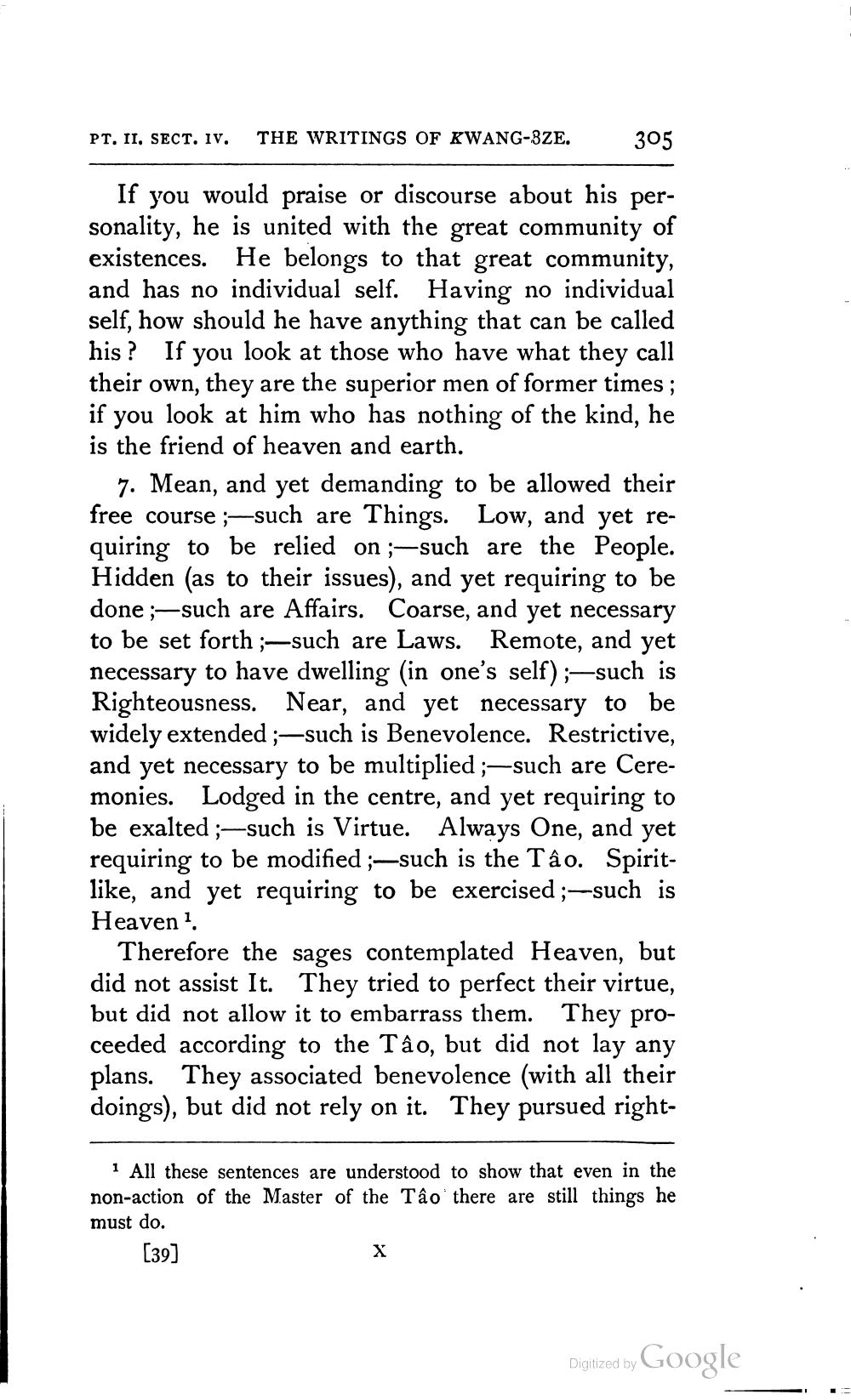________________
PT. II, SECT. IV.
THE WRITINGS OF KWANG-SZE.
305
If you would praise or discourse about his personality, he is united with the great community of existences. He belongs to that great community, and has no individual self. Having no individual self, how should he have anything that can be called his? If you look at those who have what they call their own, they are the superior men of former times ; if you look at him who has nothing of the kind, he is the friend of heaven and earth.
7. Mean, and yet demanding to be allowed their free course ;—such are Things. Low, and yet requiring to be relied on ;-such are the People. Hidden (as to their issues), and yet requiring to be done ;-such are Affairs. Coarse, and yet necessary to be set forth ;—such are Laws. Remote, and yet necessary to have dwelling (in one's self) ;—such is Righteousness. Near, and yet necessary to be widely extended ;—such is Benevolence. Restrictive, and yet necessary to be multiplied ;-such are Ceremonies. Lodged in the centre, and yet requiring to be exalted ;—such is Virtue. Always One, and yet requiring to be modified ;—such is the Tâo. Spiritlike, and yet requiring to be exercised ;---such is Heaven?
Therefore the sages contemplated Heaven, but did not assist It. They tried to perfect their virtue, but did not allow it to embarrass them. They proceeded according to the Tâo, but did not lay any plans. They associated benevolence (with all their doings), but did not rely on it. They pursued right
1 All these sentences are understood to show that even in the non-action of the Master of the Tâo there are still things he must do.
[39]
Digitized by
Digitized by Google




